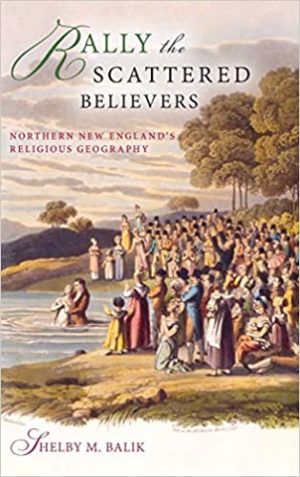The Religious Frontier: Church, State, and Settlement in Northern New England 1780-1830
Team Members/Contributors
About this dissertation fellowship
My dissertation argues that a distinctive Protestant evangelical culture took shape in Vermont, New Hampshire, and Maine during the early republic. This culture emerged from tensions between Congregationalist communities and itinerant groups – like Freewill Baptists, Methodists, and Universalists – who introduced new patterns of worship they spread throughout the region. By the 1830s, sectarian notions of spiritual community and identity had rearranged the geographic boundaries of the traditional town church, and this new system fundamentally altered northern New England’s religious landscape. My dissertation asks how northern New Englanders understood and responded to consequent changes in their religious world. How, for instance, did disestablishment compel ministers to rethink their relationships with the laity, the state, and their counterparts in other sects? How did the laity – given greater choice in a new sectarian marketplace – make decisions about religious worship, and how did these decisions shape their spiritual identities? The answers to these questions and others will not only shed light on the religious culture of an understudied region, but they will also suggest new ways of understanding (both on institutional and individual levels) the emergence of religious pluralism – a defining dynamic in American society.
| Image | Title | Year | Type | Contributor(s) | Other Info |
|---|---|---|---|---|---|

|
Rally the Scattered Believers: Northern New England's Religious Geography | 2014 | Dissertation Book |
Shelby M. Balik |